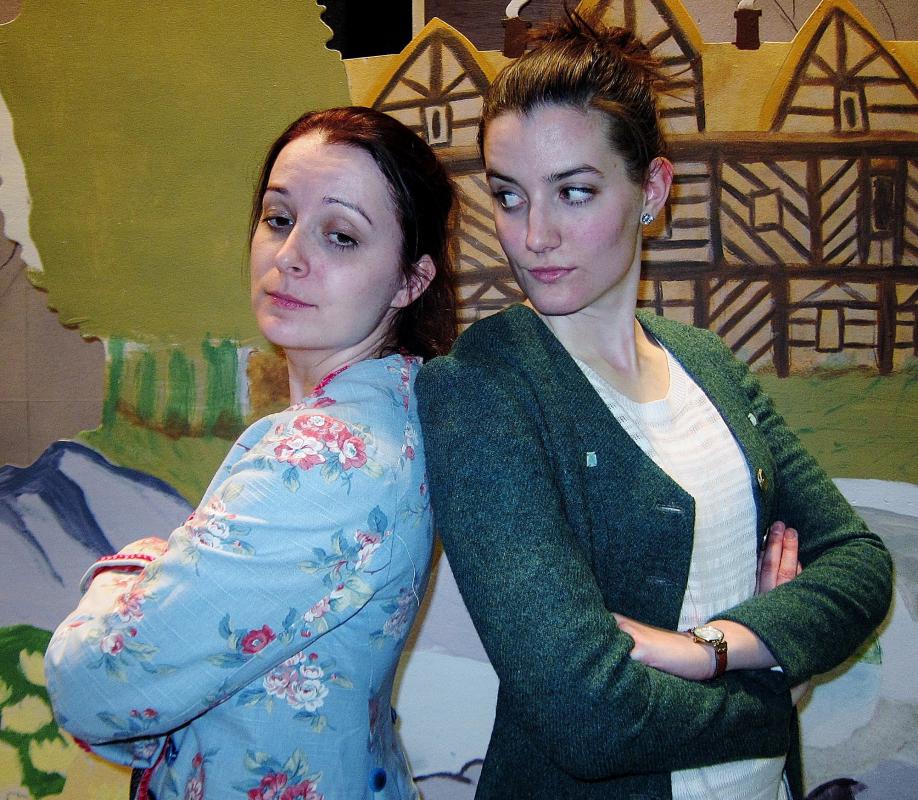You’ll probably think I’m some kind of androphobe, or that I’m just beating the same drum to death, but after a summer when so many of my favorite plays and performances were by women, I couldn’t help noticing the same theme carrying into the fall. Turns out the upcoming seasons at area colleges are generously stocked with plays by and about women.
That tilt could be expected from the two women’s colleges, Smith and Mount Holyoke, where even guy-written, male-centered plays are often performed with all-female casts. But it holds true up and down the Valley.
Take, for instance, Springfield College, where this fall’s centerpiece production is Stage Kiss by Sarah Ruhl — one of two this season by that most fascinating and unpredictable of contemporary playwrights. This one, in which two actors who are former lovers are cast opposite each other in a romantic potboiler, is a dissection of tangled relationships and a parody of several kinds of bad theater, served up as a backstage comedy.
There’s a double meaning in the title of American Hero, at Holyoke Community College in November. Bess Wohl’s edgy comedy is a view from the bottom rungs of the economic ladder — a fast-food sandwich shop where the hard-working, ill-treated staff prepare heroes (subs, hoagies, what you will) for $8 an hour, then respond creatively and heroically when the going gets even tougher.
The season at Amherst College opens next month with Dora, by faculty member Wendy Woodson. Inspired partly by Freud’s controversial case of sexual “hysteria,” this movement-theater piece finds a therapist and patient in ever-changing role relations amid “shifting landscapes of history and memory.”
At UMass, the theater department’s season opens in November with a play about one of history’s most (in)famous women. Marie Antoinette explores the cult of celebrity and the corroding allure of power. Then, in February, comes Love and Information by the boundary-smashing British playwright Caryl Churchill. It’s composed of 57 mini-plays that simultaneously express and embody our age of data overload and fractured attention span. The double-barreled title reflects the playwright’s twin concerns: the ways we hunger for both “objective” knowledge and organic human connection.
The fall season at Mount Holyoke College features a new take on the Sleepy Hollow legend and Jean-Paul Sartre’s vision of hell, No Exit — male-written works that, judging from past policy, are likely to have all-women casts. Then in the spring comes Maria Irene Fornes’ feminist classic Fefu and Her Friends, in which multiple scenes are played simultaneously throughout the theater, and Hereafter, an original twist on Shakespeare’s Macbeth by senior Jenny Daniels.
The season’s other Sarah Ruhl play comes to Smith College in February. It’s Orlando, Ruhl’s epic-poetic adaptation of Virginia Woolf’s satirical romp through English literature and history in the company of a man who becomes a woman and never grows old. That’s preceded in October by another adventure in transformation, Metamorphoses, Mary Zimmerman’s funny, poignant collection of tales from Ovid performed in and around a real pool of water.
Smith’s women-centered season also includes Stop Kiss, Diana Son’s biracial lesbian love story of sex (and violence) in the city, and Our Lady of Kibeho, continuing Katori Hall’s exploration of miracles and mayhem in contemporary Rwanda.
Androphobe? No, but I do plead guilty to being a cheerleader for progress toward gender equity in theater, with our own region proudly in the vanguard.•
Chris Rohmann is at StageStruck@crocker.com and valleyadvocate.com/author/chris-rohmann.



